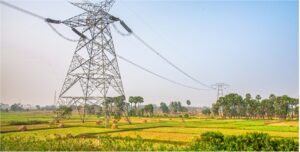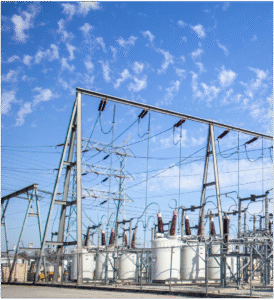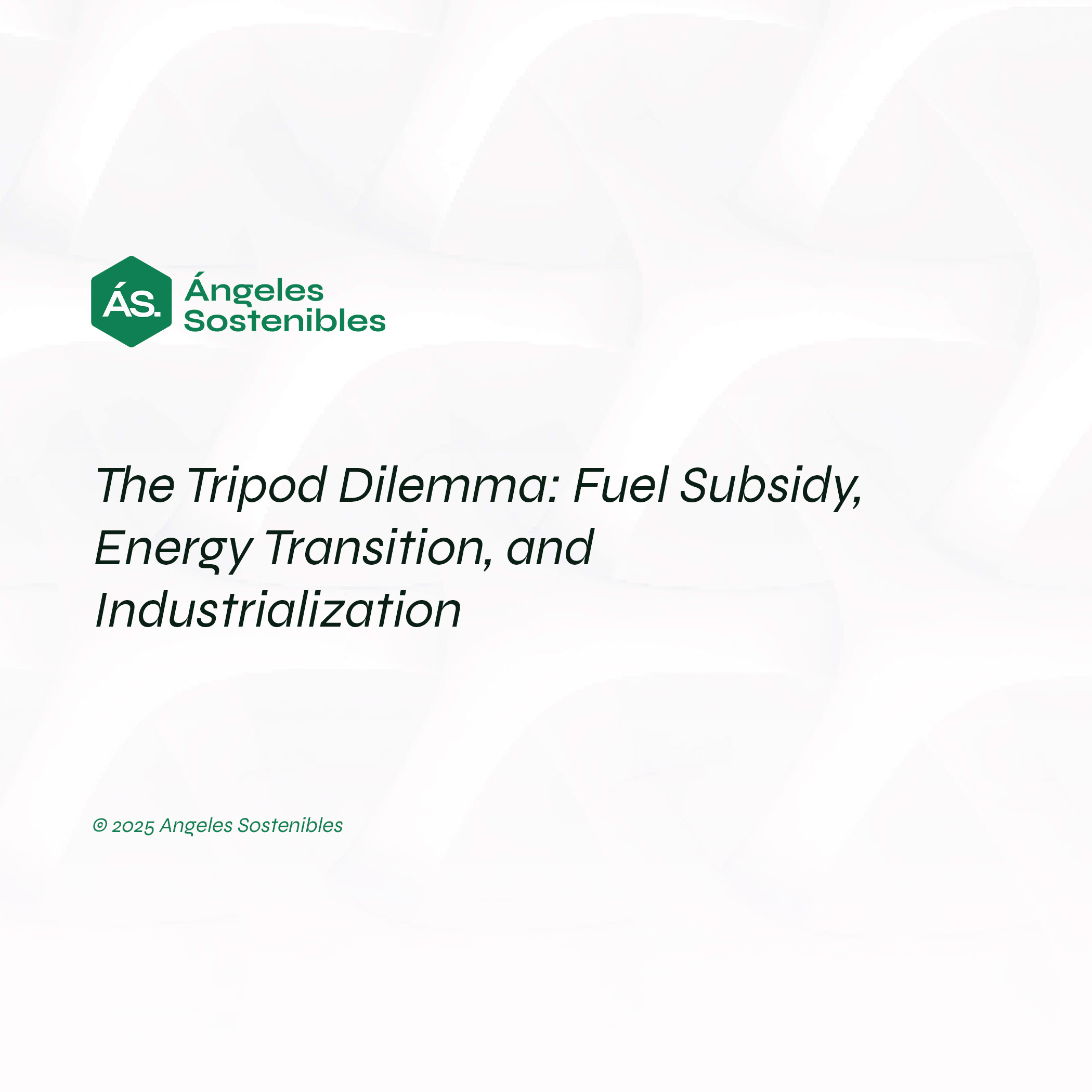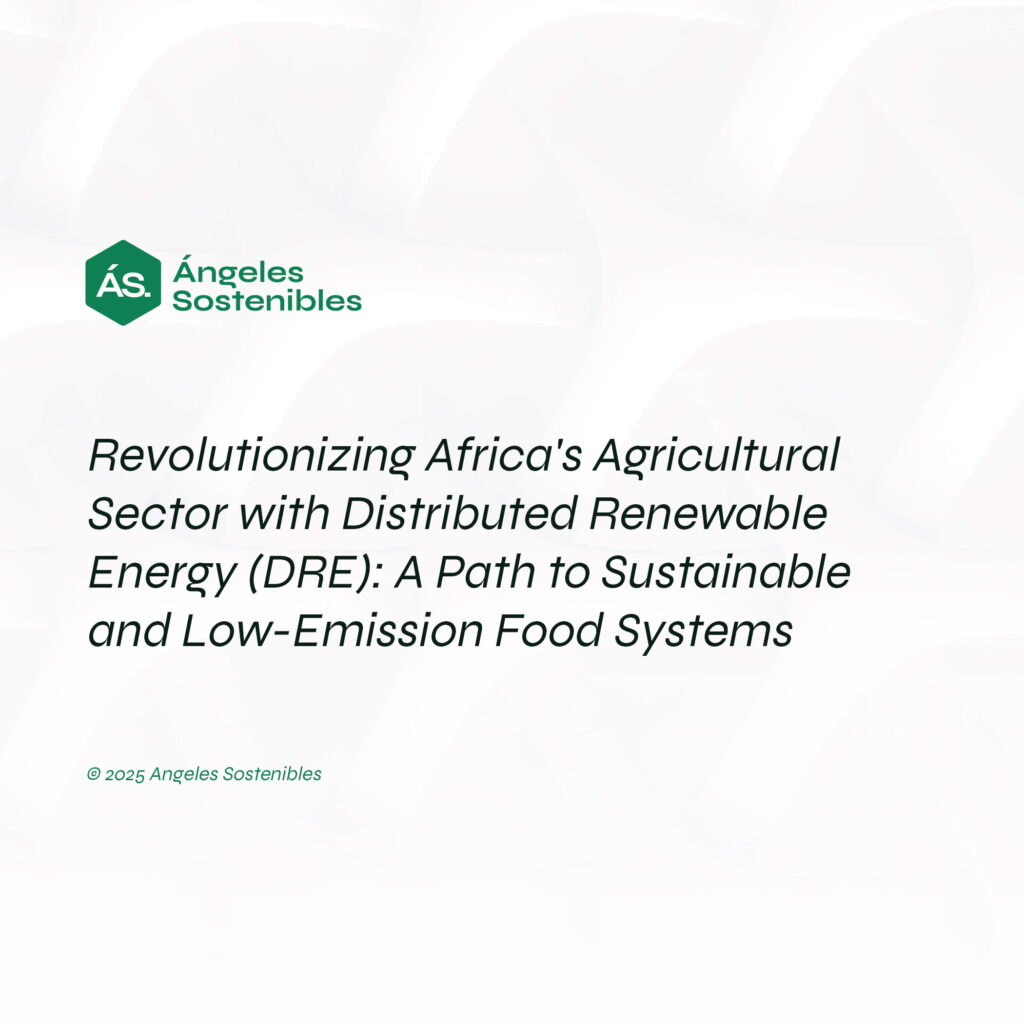Introduction
In the coming weeks, as Nigeria welcomes a new president and administration, the transformative potential of rural electrification and productive energy also enters a new beginning. With the provision of clean and affordable energy access to small and medium-sized enterprises (SMEs) in rural areas, Nigeria has the opportunity to launch an Industrial Revolution, driving economic growth, job creation, and overall industrial development. Recent statistics highlight the progress made in rural electrification, with over 2,000 electrification projects implemented by the Rural Electrification Agency (REA) in the last decade, impacting the lives of an estimated 5 million Nigerians.

Contributions of Rural Electrification
These projects have resulted in a total installed capacity of over 600 MW, supporting over 1 million connections. The strategic interventions by the REA targeting sectors such as healthcare centers, markets, schools, and agriculture have yielded significant social, environmental, and economic impacts. Empowering SMEs with energy-efficient technologies and equipment enhances productivity, reduces operational costs, and fosters innovation. The formation of local industrial clusters and business associations in rural areas promotes collaboration, knowledge sharing, and resource pooling among SMEs, driving industrial development in sectors with high growth potential.
As Nigeria stands at the cusp of a new era, harnessing the power of rural electrification and productive energy use can pave the way for a prosperous and sustainable future, driving Nigeria’s journey towards industrialization and economic prosperity. Rural electrification, coupled with productive use of energy, holds immense potential to propel Nigeria into an era of industrialization. By providing clean and affordable energy access to small and medium-sized enterprises (SMEs) in rural areas, a bottom-up approach can be employed to drive the energy transition and pave the way for an Industrial Revolution. The transformative journey for a
bottom-up approach needs the crucial role of rural electrification and its impact on Nigeria’s economic growth, job creation, and overall industrial development.
To begin this endeavor, a comprehensive assessment of energy demand in rural areas must be conducted. The Rural Electrification Agency (REA) has implemented over 2,000 electrification projects in the last decade, impacting the lives of an estimated 5,000,000 Nigerians across the country. These projects have resulted in a total installed capacity of over 600 MW, equivalent to over 1,000,000 connections. These numbers highlight the significant progress made in expanding energy access in rural areas.
Building on these achievements, the establishment of a decentralized energy system becomes pivotal in the quest for rural electrification. By prioritizing local energy generation and distribution, mini-grids or standalone renewable energy systems can be implemented to cater to the energy needs of SMEs in rural areas. The recent initiative by the REA to improve livelihoods in rural communities through targeted programs is a testament to this approach.
 The strategic interventions have addressed baseline conditions and challenges faced by beneficiaries, such as access to electricity and water, petrol consumption patterns, security conditions, employment conditions, gender inclusivity, and major crops produced. The electrification programs implemented by the REA have already showcased positive impacts on the social, environmental, and economic aspects of livelihoods in beneficiary communities.
The strategic interventions have addressed baseline conditions and challenges faced by beneficiaries, such as access to electricity and water, petrol consumption patterns, security conditions, employment conditions, gender inclusivity, and major crops produced. The electrification programs implemented by the REA have already showcased positive impacts on the social, environmental, and economic aspects of livelihoods in beneficiary communities.
For instance, the implementation of the off-grid electrification program has resulted in 196 awarded standalone solar systems, ranging from 5kW to 15kW, across health centers in the six geopolitical zones. Moreover, 104 Unity Colleges and 195 healthcare centers have been awarded solar systems for deployment. These numbers demonstrate the tangible progress made in promoting the productive use of energy in key sectors.
As a result of this, the formation of local industrial clusters or business associations in rural areas becomes an important driver of industrialization. The REA’s electrification programs have deeply impacted beneficiaries consisting of farmers, households, women, and youths. Through collaboration, knowledge sharing, and resource pooling, these programs have nurtured a supportive ecosystem that fosters innovation, increases productivity, and boosts industrial development. The projects deployed during 2019– 2022, with a total project cost of 63.50 billion Naira and 1,915 projects delivered nationwide, exemplify the scale of impact achieved.
It is for this reason that access to affordable financing options must be prioritized for SMEs in rural areas to invest in clean energy technologies and expand their businesses. The 2020 “Energy for All” budget, amounting to 12,424,849,535 Naira, demonstrates the commitment of the Federal Government to support electrification programs. By establishing partnerships with financial institutions, government agencies, and development organizations, the REA can provide the necessary financial instruments, including loans, grants, and other forms of support, targeted towards energy transition and industrialization efforts.
Conclusion
Therefore rural electrification, driven by productive energy use, has the potential to ignite an Industrial Revolution in Nigeria. The numbers and statistics presented underscore the progress already made in expanding energy access, improving livelihoods, and fostering economic development. By leveraging the achievements of the Rural Electrification Agency, Nigeria can continue to build on its success by focusing on comprehensive assessments, decentralized energy systems, productive energy use, local entrepreneurship, access to finance, capacity building, supportive policies, and monitoring mechanisms. This transformative journey will not only improve energy access but also foster innovation, increase productivity, and create a thriving ecosystem for inclusive and equitable development. By embracing rural electrification and productive energy use, Nigeria can pave the way towards a prosperous and sustainable future, while showcasing international leadership in the energy transition and advocating for climate finance commitments from developed nations.







